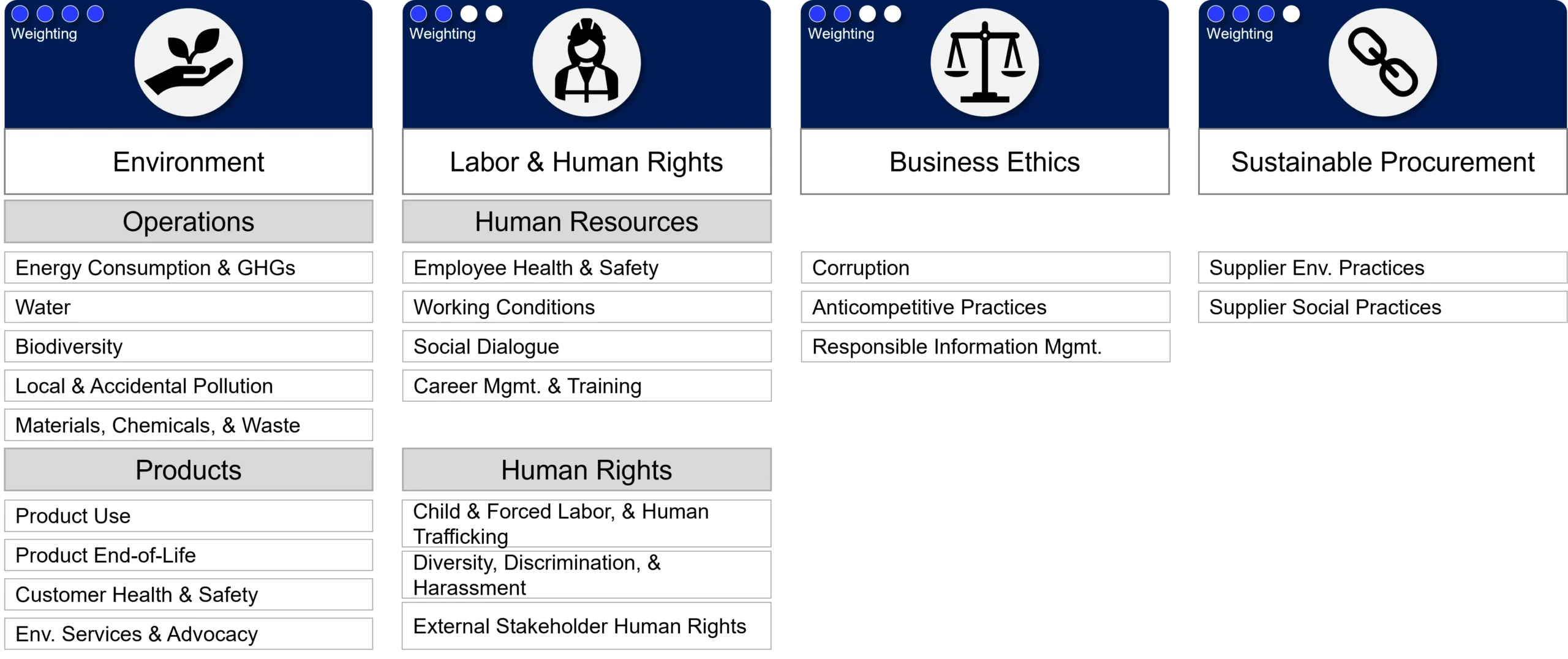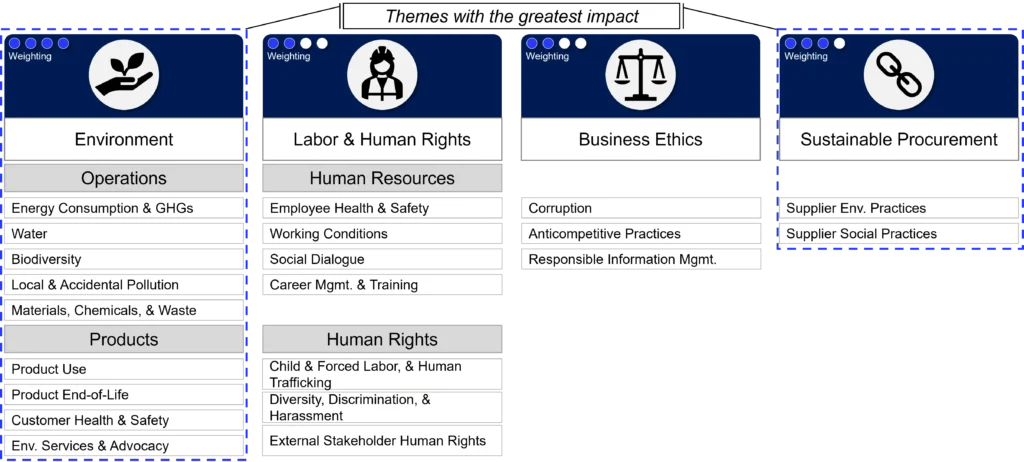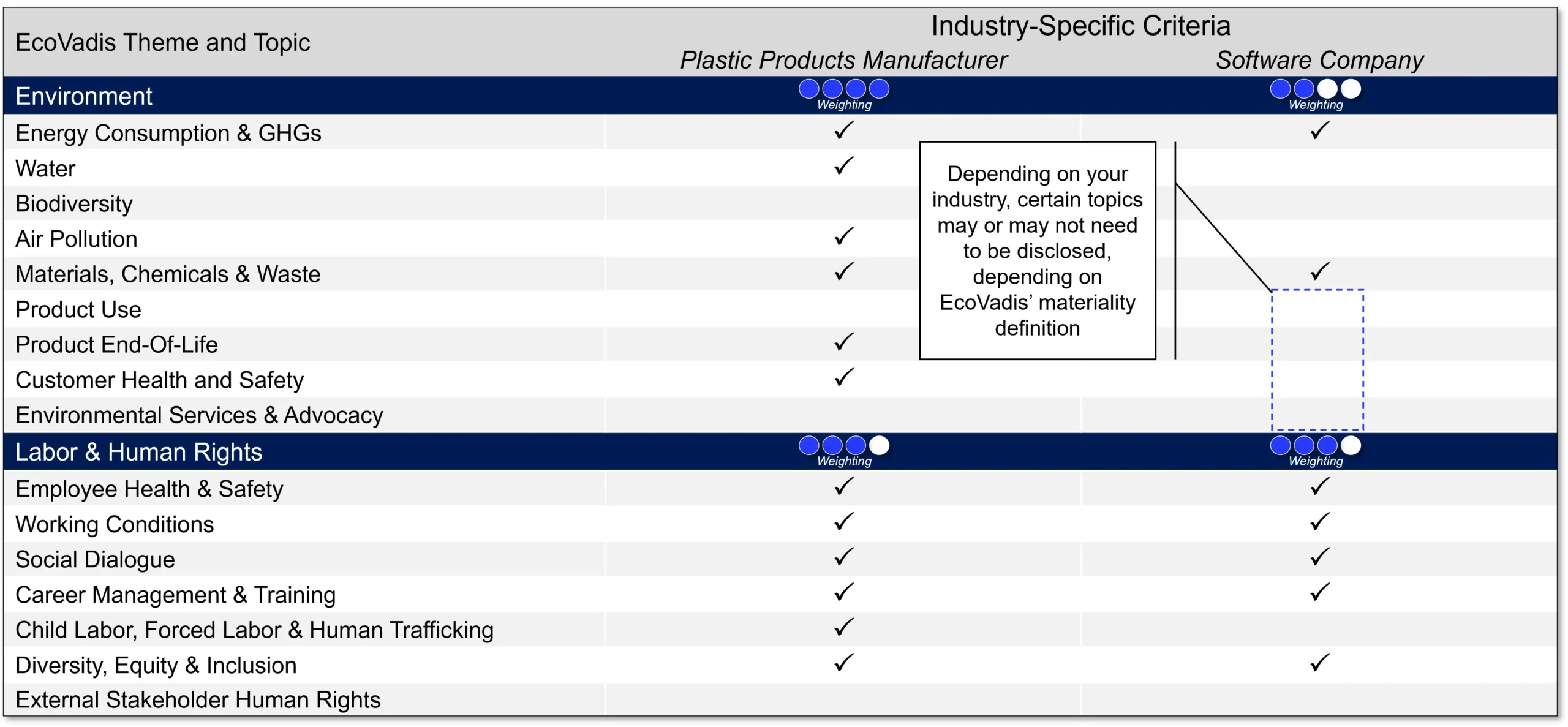Introduction
In today’s business landscape, transparent disclosure of sustainability performance has become a critical driver of trust and differentiation. Customers, investors, and other stakeholders are increasingly demanding credible evidence of a company’s ESG commitments as they seek to align with responsible partners. Platforms like the Carbon Disclosure Project (CDP), Sustainalytics, and EcoVadis have emerged as benchmarks for evaluating sustainability efforts, offering standardized assessments that provide visibility into a company’s environmental, social, and governance practices.
For many organizations, these assessments have moved beyond compliance to become strategic tools, influencing customer decisions in competitive RFP processes and shaping investor perceptions. By leveraging these platforms, businesses not only demonstrate accountability but also position themselves as leaders in sustainability, gaining a competitive edge in an increasingly eco-conscious market.
A Brief History of EcoVadis
EcoVadis, established in 2007, is now one of the most widely trusted ESG reporting platforms, assessing over 130,000 companies across 220+ industries to-date. Renowned for its comprehensive methodology, the platform assesses sustainability performance across 21 criteria grouped into four themes: Environment, Labor & Human Rights, Ethics, and Sustainable Procurement:

Source: EcoVadis
Tailored to company size, industry, and location, EcoVadis offers a tailored, materiality-based approach, enabling comparison across sectors. EcoVadis is widely used by multinational corporations to quantify supplier performance and foster collaboration through its expansive supplier network, helping businesses of all sizes improve their sustainability practices and build stakeholder trust.
What Does EcoVadis Measure?
EcoVadis weights its four themes based on the relevance of sustainability criteria to a company’s specific industry. For example, environmental performance is more critical for a plastics manufacturer than for a software company and is weighted accordingly. The assessment requires evidence-based responses, which EcoVadis evaluates over a 6–8 week grading period. Post-assessment, EcoVadis provides a comprehensive scorecard, a performance score (0–100), and a corrective action plan to support continuous improvement:

Source: EcoVadis
How EcoVadis Scores Companies
EcoVadis rates companies using a 0–100 scale divided into five performance levels, which reflect varying degrees of ESG risks and opportunities. The scoring methodology considers governance structures, policies, tangible actions, reporting cadence, KPIs, internal practices, and external recognitions. EcoVadis’ approach differentiates companies with high-risk profiles from those leveraging ESG as a strategic advantage, enabling data-driven improvements to sustainability management systems.

Source: EcoVadis
Understanding EcoVadis Industry & Materiality-Driven Weightings
EcoVadis applies a materiality-based approach to tailor its assessment to the unique sustainability challenges and priorities of each industry. This approach ensures that companies are evaluated on criteria most relevant to their specific sector, enabling fair and meaningful comparisons.
The assessment assigns a weighting to each of its four themes based on the materiality of these issues for a given industry. Each theme is weighted on a scale from 1 (low impact) to 4 (high impact), reflecting the significance of the theme to the sector. For example, environmental considerations might carry a higher weight for industries like manufacturing or agriculture, where emissions, resource use, and waste management are critical. In contrast, ethics or labor practices may have greater emphasis for industries with complex supply chains or significant labor considerations. These weightings influence the depth and focus of the questionnaire and scoring.
Illustrative Example of Theme Weightings between Company Industries

Source: EcoVadis
Illustrative Example of Topic Weighting between Company Industries

Source: EcoVadis
EcoVadis’ criteria under the ‘Environment’ theme is less material for a software company, while the same EcoVadis theme is more material for a plastic products manufacturer, and consequently weighted higher.
Maximizing Your EcoVadis Performance: Best Practices
1. Understand the EcoVadis Methodology
Knowing how EcoVadis weights material topics for your industry is essential for aligning your reporting efforts effectively. Conduct a thorough review of the EcoVadis methodology annually to account for updates to scoring criteria and nuances.
Pro Tip: Regularly review EcoVadis’ methodology updates to ensure your reporting reflects the latest expectations.
2. Assemble a Cross-Functional Task Force
Creating a task force that includes sustainability, compliance, procurement, HR, operations, and safety teams is crucial for a well-rounded assessment. A dedicated coordinator should oversee evidence collection, communication, and progress tracking to ensure consistency and completeness.
Pro Tip: Assign a central coordinator to manage evidence, facilitate collaboration, and drive accountability across departments.
3. Scrub Evidence Against EcoVadis Requirements
EcoVadis has stringent evidence criteria focusing on relevance, recency, and credibility. Ensure all evidence meets these standards by integrating it into your sustainability management system, stamping it with your logo and codification date, and ensuring it is applicable across your reporting boundary.
Pro Tip: Timestamp all evidence and ensure it aligns with EcoVadis’ specific requirements. Outdated evidence may result in scoring penalties.
4. Synchronize Sustainability and EcoVadis Reporting
Because EcoVadis assessments occur annually, align your submission with your sustainability report release cycle. Sustainability reports often account for over 50% of the assessment’s required evidence. Use the scorecard feedback to prioritize gaps and improve alignment with EcoVadis’ materiality topics ahead of your next cycle.
Pro Tip: Leverage EcoVadis themes and material topics that are most relevant to your industry, ensuring alignment with your broader sustainability strategy.
5. Start Early and Stay Organized
EcoVadis is an ongoing process that benefits from early preparation. Allocate 3–4 months for evidence collection and internal reviews to ensure compliance with EcoVadis requirements. Conduct a pre-assessment analysis to identify and address gaps in your disclosures.
Pro Tip: Begin pre-assessment activities at least three months before your scheduled submission to avoid last-minute challenges.
About Full Scope Insights & our EcoVadis Support Services
As sustainability becomes a critical factor in value chain management, EcoVadis offers companies a powerful tool to evaluate and enhance their ESG performance. At Full Scope Insights, we help clients turn EcoVadis assessments into a competitive advantage, using proven strategies to maximize scoring and integrate sustainability into long-term business objectives.
Ready to unlock the full potential of EcoVadis for your business? Contact us today to partner with experienced industry professionals who will guide you every step of the way.
